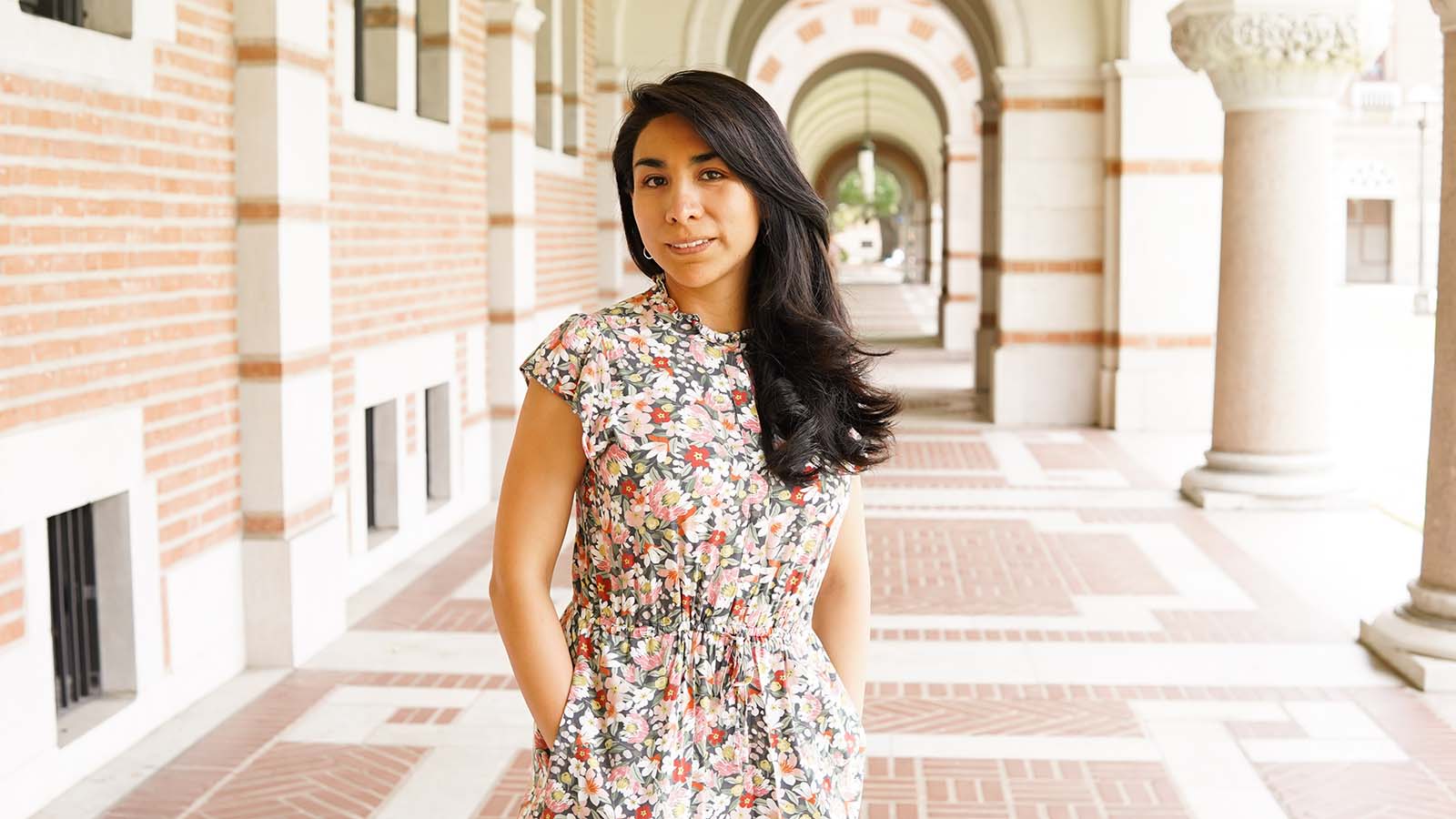Itzel Olivos-Castillo is a doctoral student in computer science working in the Laboratory for the Algorithmic Brain directed by Xaq Pitkow, assistant professor of electrical and computer engineering (ECE) at Rice and associate professor of neuroscience at the Baylor College of Medicine.
Olivos-Castillo was born and raised in a small town near Mexico City, where she developed an early interest in STEM. "Since I was a little girl," she said, "I have enjoyed solving puzzles, crunching math riddles and building mechanical artifacts. So imagine my surprise when I discovered that those activities were crucial to succeed in a STEM career!"
She earned her bachelor's degree in telematics engineering and a master's degree in computer science from the Instituto Politécnico Nacional in 2015 and 2017, respectively. As an undergraduate, she studied abroad.
"I learned about data science at Aalto University in Finland and deep learning at UC Berkeley. Those experiences broadened my scientific training, made me more creative and opened multiple job opportunities," Olivos-Castillo said.
She went on to a career in industry using machine learning tools before returning to school.
"I saw how the growing availability of specialized hardware and massive amounts of data unleashed the power of machine learning algorithms over the past years," Olivos-Castillo said. "I realized this momentum would come to an end because of the growing number of applications where little data exists for training."
Olivos-Castillo applied for a Fulbright-García Robles scholarship, moved to the U.S. and sought to specialize in computational neuroscience. "A better understanding of the human brain, a very sophisticated reasoning engine, is essential to building the next generation of AI systems --more robust and general-purpose, less artificial and more intelligent," she said.
Through the United States-Mexico Commission for Educational and Cultural Exchange (COMEXUS), Olivos-Castillo found a graduate program at Rice that met her needs. COMEXUS administers the Fulbright-García Robles scholarships and mentors recipients through the admission process.
I loved the idea of joining Rice because of its prestigious academic programs, interdisciplinary research and strong collaborations with the Texas Medical Center, she said.
She is halfway through her Ph.D., advised by Pitkow, who joined Rice and BCM in 2013. He is co-director of the Center for Neuroscience and Artificial Intelligence at BCM.
"Pitkow is an expert in developing theories about the computational functions of neural networks. His mentorship has helped me enjoy my research journey and develop the scientific mindset necessary to generate innovative solutions," she said.
Olivos-Castillo's research involves understanding the mechanisms that give biological organisms an advantage over machines in perception and mobility. Her research has multiple applications, from explaining and repairing brain function to designing autonomous agents that meet size, weight, power and communication constraints.
Olivos-Castillo hopes to drive more Mexican women toward STEM.
"As a Latin woman who has had multiple opportunities to grow and succeed in STEM, I love to get involved in activities that increase the global accessibility of science," she said. "For example, I create content at Neuromatch Academy, a non-profit organization providing training in theoretical and computational neuroscience. And I give talks to motivate young Mexican women to pursue careers in science and technology."

